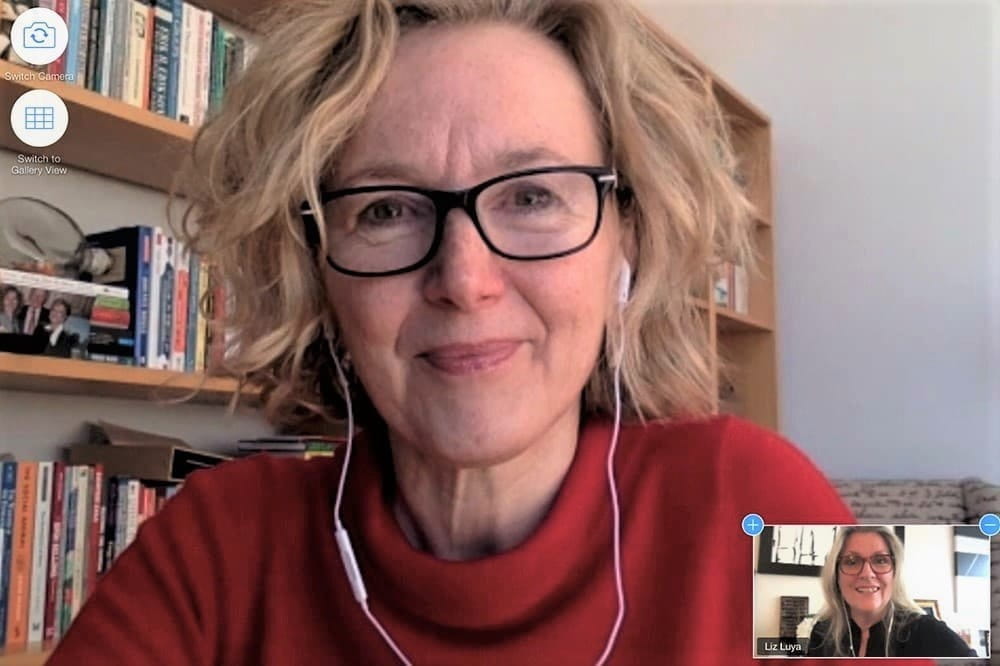
A colleague (Liz Luya) and I worked together during the SARS outbreak in Hong Kong in 2003. We learned from what worked and what didn’t work. Liz is still based in HK and is currently immersed in the challenge of leading through COVID-19, and we’ve been talking a lot about the similarities and differences of these two viruses. Between us we’ve heaps of experience around navigating challenges in business. We’re now offering pragmatic support to businesses to help them through the COVID-19 crisis.
We are sharing some advice and practical tips in three blog posts: one for business leaders, this one for managers and one for anyone who is working from home.
There’s no doubt that managing people who are working from home presents challenges and can be difficult for even the most experienced managers. The added challenge today is the broader uncertainty and the speed of change linked to COVID-19. Many teams will be working from home, without much notice and time to prepare.
We know from conversations, that managers can struggle with a few things, including keeping themselves motivated, managing people remotely, managing the expectations of their boss, continuing to deliver with shifting priorities, handling anxieties (including their own), and supporting their team with all the distractions that come from being at home.
Practical tips
Make sure you’re OK. As the saying on airlines goes, fix your own oxygen before attending to others. It’s extra hard supporting people in these circumstances so keeping yourself emotionally and mentally stable is absolutely crucial. Have a read of the survival guide.
Understand each person’s set up. What is their ‘work from home’ arrangement? Do they have the right technology, others at home, space to work? Understand it and ask how it’s going when you make the opportunity to speak to them. Offer help where you can.
Agree expectations and boundaries. As soon as your team starts working from home the trusted relationship can be put under pressure. Take an example (recently in the news) of a team of staff, who decided to meet for a hike during their first ‘work from home’ week. They posted a Facebook picture of themselves in the hills with “best WFH day ever”. It went viral. In fact, they may have agreed to posting this with their manager, we don’t know, but it wasn’t a great look. Have a conversation around, for example, working hours and flexibility (is it OK to go out for a walk during the day, go to the gym off-peak, or head to the shops?). By agreeing it up front you’re letting the team know that this might happen, you’re also building greater levels of trust and connection with them. Let them take the lead on what might be OK/not OK.
Host a huddle call each Monday morning. Simon Sinek talks about the importance of connection. He recommends a weekly huddle, not a long call, but a call where everyone has a few minutes to tell people how they are feeling, what they are thinking. Nothing to do with work, but a touch point to show you care, and to allow the team to feel a real connection. Use this as an opportunity to talk about how you’re doing as well.
Set up regular virtual team meet-ups and one-to-one calls. This will keep people connected and give you a chance to find out how people are doing as well as keeping them energised. In those meetings – rotate the chair, use breakout facilities if you have them, use ‘named’ questions – rather than ask if anyone has thoughts on an issue, say “Josh and Sarah, I’d like you both to have a think about this and give me your views”. It’s all about keeping them engaged in the meeting.
Pay close attention to how you show up. People are affected by their bosses’ energy – if it’s draining it pulls them down, if it’s calm and positive it helps them stay calm and positive. We don’t mean being ‘ra ra’ positive in a fake way but doing things like keeping your tone energetic, hearing their concerns and also keeping them focused on what you all can do rather what they can’t do.
Set short-term targets. Think about whether you can set daily targets in a fun way so that people stay focused and have a concrete reason to check in at the end of each day. Make the targets such that they feel a sense of having accomplished something each day. Consider letting them set weekly targets for each other…!
Daily check-ins. In the morning you could get people to send a note saying what their focus is that day and at the end of the day what they’ve achieved and how they’ve used their strengths. This helps with focus and it also gives a sense of appreciation of what they’re good at.
Keep talking about what the company is doing, what the focus is around, and how things are changing. Let them understand how they fit in. It’s very easy to get caught up in communication just around tasks. Make a note to talk about other things that help them understand context and bigger picture.
Run a five minute Q&A at the end of each meeting. What questions do they have, that don’t related to the business-as-usual?
Manage your manager. Keep your manager and key stakeholders aware of what’s happening with the team, their achievements, and challenges so that you manage their expectations.
We’re running Leading Your Business through the COVID-19 Crisis online sessions with CEOs and senior teams to share our experience and to coach you through any specific challenges. As well as this support, we’ve put together some options (see below) to help organisations through the COVID-19 crisis. If you’d like to know more about any of them email or call us. We’d love to support you if we can.
Sally Bibb
linkedin.com/in/sallybibb/
sallybibb@engagingminds.co.uk
+44 (0) 7721 000095
Liz Luya
linkedin.com/in/lizluya/
lizluya@luya-associates.com
+852 9468 2775

